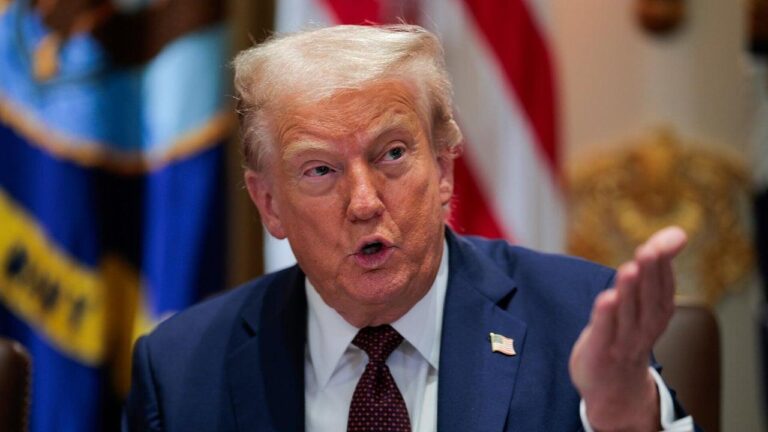Examining the Feasibility of Reinstating the Death Penalty in Washington, D.C. Under Former President Trump
Understanding Presidential Influence and Washington, D.C.’s Unique Legal Framework
The question of whether former President Donald Trump possesses the legal capacity to bring back capital punishment in Washington, D.C. involves navigating a complex constitutional and legislative landscape. Unlike states, the District of Columbia operates under a distinctive federal oversight system, where Congress holds ultimate legislative authority. While the president can enforce federal laws, he lacks the unilateral power to reinstate the death penalty in D.C. Instead, any such initiative would necessitate cooperation with Congress, which retains the exclusive right to enact or repeal criminal laws within the district.
Key elements shaping this dynamic include:
- Congressional Supremacy: Congress maintains full control over D.C.’s legal code and budgetary matters.
- Local Legislative Role: The D.C. Council can pass laws but remains subject to congressional review and potential veto.
- Executive Enforcement Limits: The president oversees federal law enforcement agencies but does not dictate local criminal justice policies.
| Authority | Jurisdiction | Control Over Death Penalty |
|---|---|---|
| President | Federal law enforcement | Indirect and limited |
| Congress | Legislative power over D.C. | Complete authority |
| D.C. Council | Local legislation | Subject to congressional override |
The Evolution of Capital Punishment in the Nation’s Capital
Washington, D.C.’s legal history regarding the death penalty reflects its unique status as a federal district rather than a state. Historically, capital punishment was applicable under federal statutes, but the district abolished it in 1981 through the District of Columbia Death Penalty Act. This legislative change aligned with a nationwide trend during the late 20th century, driven by increasing concerns over wrongful convictions, civil rights, and ethical debates surrounding state executions.
Several factors contributed to this abolition:
- Enhanced Local Governance: The 1973 Home Rule Act granted D.C. residents greater authority over local laws, including criminal justice reforms.
- Federal vs. Local Jurisdictional Complexities: Death penalty cases in D.C. often fell under federal court jurisdiction, complicating enforcement and legal consistency.
- Community and Advocacy Influence: Persistent opposition from residents and activist groups shaped legislative decisions against capital punishment.
| Year | Milestone | Significance |
|---|---|---|
| 1973 | Home Rule Act Enacted | Expanded local legislative powers |
| 1981 | Death Penalty Abolished in D.C. | Official end to capital punishment |
| 1997 | Supreme Court Clarification | Defined federal jurisdiction over capital cases |
Legal Obstacles and Congressional Role in Reinstating Capital Punishment
Attempting to restore the death penalty in Washington, D.C. involves navigating a complex web of legal and constitutional barriers. Since Congress holds legislative authority over the district, any reinstatement effort must pass through congressional approval rather than rely on executive action alone. This division of power highlights the constitutional limits on presidential influence in local criminal justice matters.
Congressional oversight introduces several critical safeguards, such as:
- Constitutional Review: Ensuring compliance with the 8th Amendment’s prohibition on cruel and unusual punishment.
- Procedural Protections: Implementing rigorous safeguards to prevent miscarriages of justice.
- Transparency Requirements: Mandating detailed reporting on the application and outcomes of capital punishment.
Additionally, the Home Rule Act restricts local legislative autonomy, further complicating efforts to alter criminal statutes without congressional consent. Judicial scrutiny is likely to play a significant role in evaluating any proposed legislation, potentially leading to legal challenges that could delay or block reinstatement.
| Legal Factor | Effect on Reinstatement |
|---|---|
| Congressional Authority | Mandatory legislative approval |
| 8th Amendment | Limits on punishment severity |
| Home Rule Act | Restricts local law changes |
| Judicial Oversight | Potential legal challenges |
Strategies for Addressing Jurisdictional Conflicts: Insights from Legal Experts
Legal scholars stress the importance of balancing federal authority with local governance rights when considering death penalty legislation in Washington, D.C. While Congress wields significant power over the district, laws passed by the D.C. Council carry legal weight unless explicitly overturned. This dual authority often results in jurisdictional tensions, especially on contentious issues like capital punishment.
Experts recommend several approaches to effectively manage these conflicts:
- Analyzing Legal Precedents: Studying prior court decisions that clarify congressional control over D.C. laws.
- Fostering Federal-Local Collaboration: Encouraging dialogue between federal legislators and local officials to find common ground.
- Respecting Resident Participation: Prioritizing the democratic rights and civil liberties of D.C. residents in policymaking.
- Conducting Thorough Constitutional Reviews: Ensuring any legislative proposals comply with constitutional protections before enactment.
| Consideration | Implication |
|---|---|
| Congressional Power | Legislative authority with local considerations |
| Local Autonomy | District laws remain unless revoked |
| Judicial Review | Ensures constitutional adherence |
| Resident Rights | Protects democratic engagement |
Final Thoughts: The Complex Path Ahead for Capital Punishment in D.C.
In summary, although former President Donald Trump has voiced support for bringing back the death penalty in Washington, D.C., the legal and constitutional framework presents formidable obstacles. Given that the district is governed by a combination of congressional authority and local legislative bodies, any modification to its criminal justice system requires legislative consensus rather than executive decree. As public discourse evolves and legal debates continue, the intricate balance between federal oversight, local governance, and community values will remain central to the future of capital punishment in the nation’s capital.







